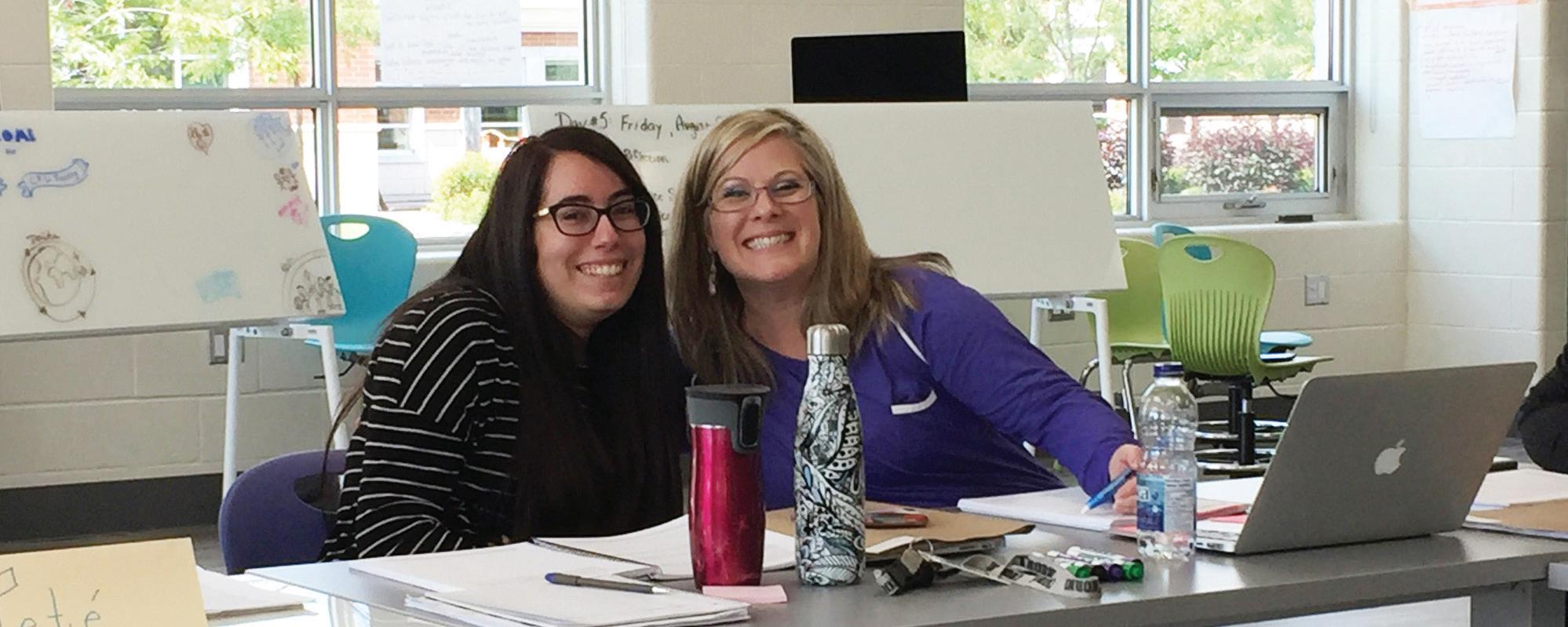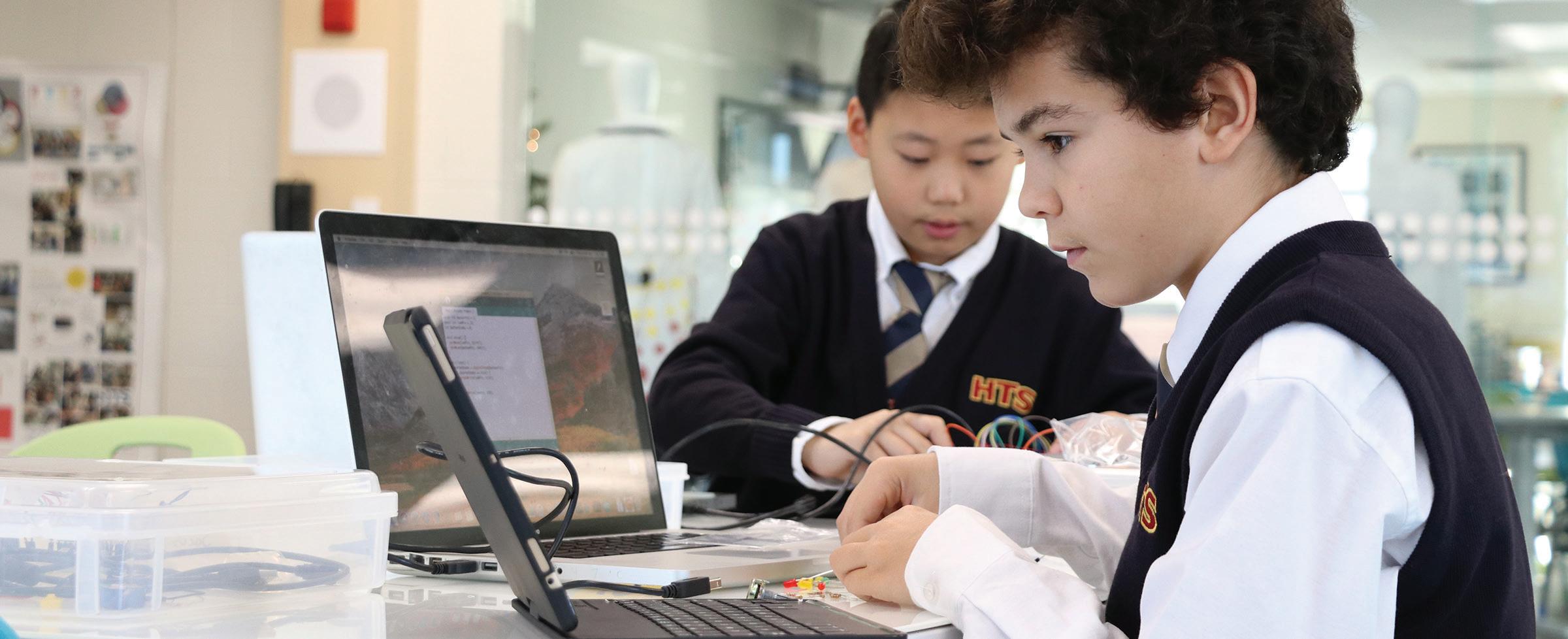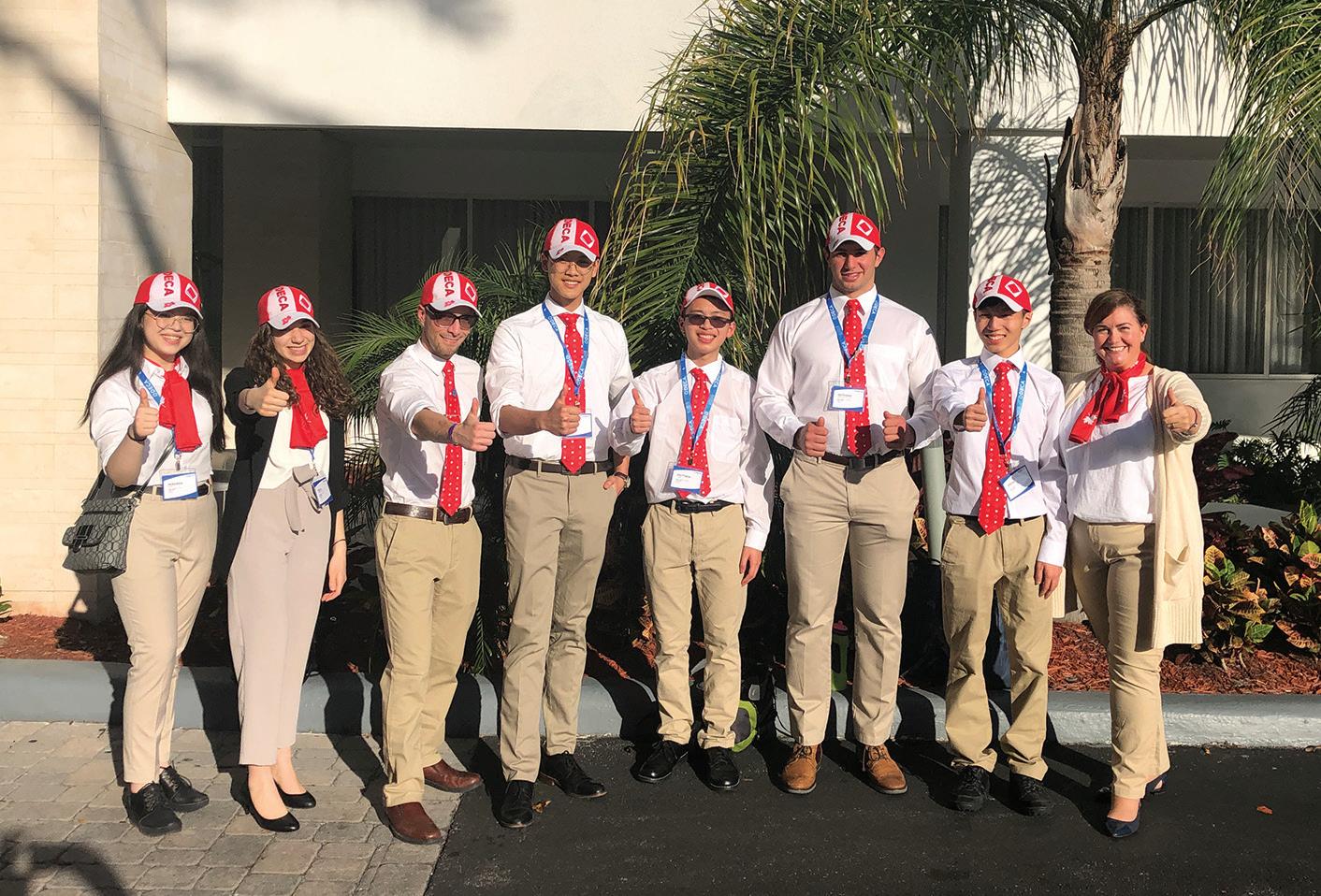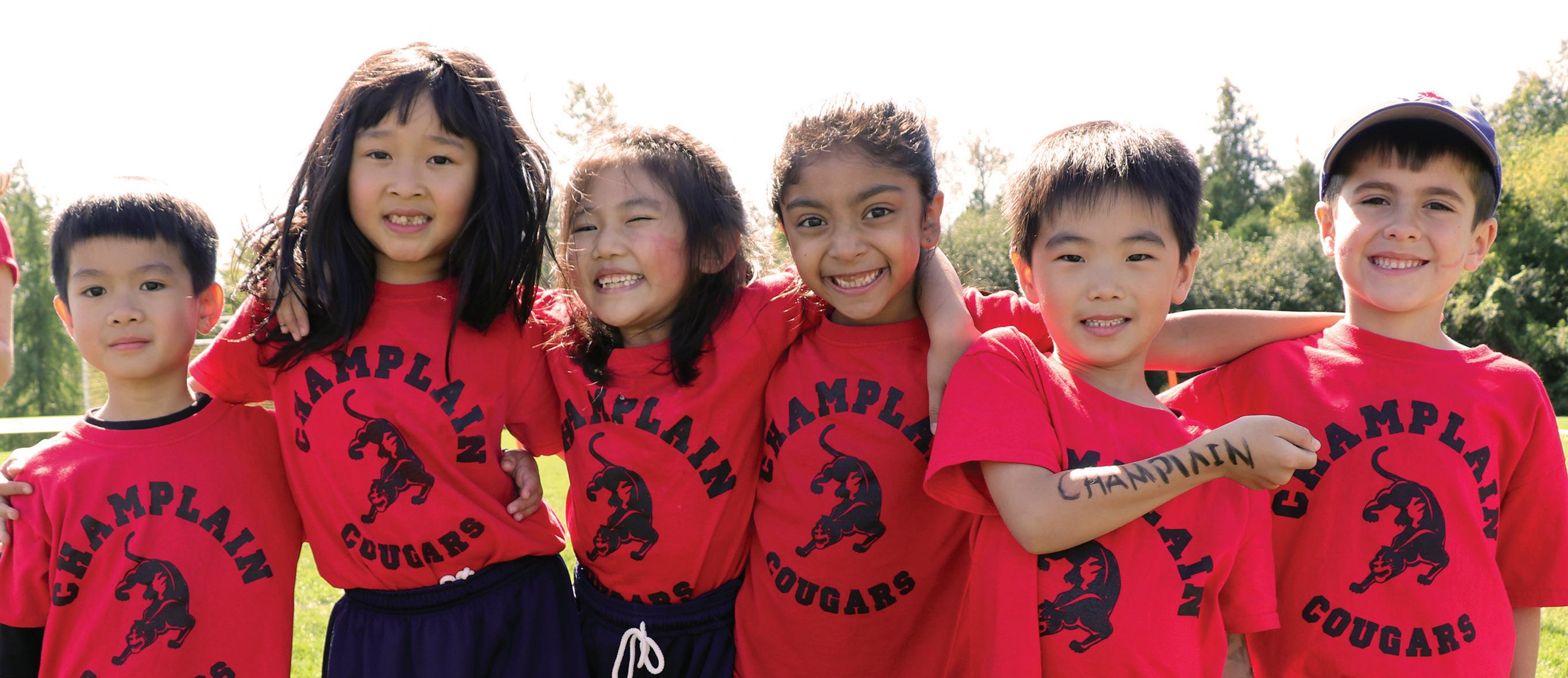
4 minute read
The Heart of Assessment
BY KATIE YOUNG, ENGLISH TEACHER
We live in a continuously changing cultural and employment landscape, and we have a new generation of learners who – with limitless information at the tips of their fingers – have no need for a sage at the centre of the classroom pontificating about his or her expertise. How then can we, as educators, create assessments that are rigorous but also meaningful in providing opportunities for students to explore topics that matter to their place within our world? If we place relationships first in our classroom, what should be at the heart of our assessment practices?
The nature of assessment – what it means and how to create meaningful ways to assess student learning – has been under continuous renewal by educators and stakeholders who care deeply about student learning. For several years now, HTS has been evolving our pedagogical practices to meet the often varied and complex needs of today’s modern learner. As we mould, change and polish this moving target, we have encountered many opportunities for growth and reflection.
I recently read a quote that stood out to me and spoke to what is at the heart of this assessment journey: “Assessment is an act of love.” I spent some time digesting and making sense of these words, but they resonated with the seminal work Pedagogy of the Oppressed by Paulo Freire. Though we may be uncomfortable with the term “love” being used about teaching and our relationships in the classroom, when simplified, what this means is that educators can intentionally choose to value and present care and compassion for their students within the pedagogical process. The pedagogy of love humanizes learning by engaging students in an ongoing process of self-exploration.

For educators, placing relationships first and at the forefront of classroom instruction is imperative, as is relinquishing the role of “purveyor of all knowledge.” My teaching partners and our Grade 11 classes recently embarked on such a journey with their Personal Inquiry Project. In a major culminating evaluation beginning in September and ending in May, the Personal Inquiry Project (affectionately known as PIP) tasked the students with creating a research-based presentation in the style of a TED Talk. Students could choose any topic of interest to them that would offer (as the TED Talk motto goes) “ideas worth spreading.” Though the project was curriculumdriven, the students were at the helm of their own learning. Topics chosen ranged widely from “Why We Should Not Fear Death” to “Living with a Learning Disability” and “Concussion Prevention.” Throughout the year, we “scaffolded” the work and set out curriculum expectations that the students needed to meet, and we also had many conversations about their progress throughout the learning process. In particular, these steps allowed me to learn about my students, their passions and fears, and how they learn best in a way that I had not experienced before. Carving out this time in the classroom had multiple rewards: we not only developed the students’ research, organization, reading and communication skills but also fostered and strengthened relationships built on trust, enabling students to take more significant academic risks.
As we worked through this process, some students were clearly craving a deeper understanding of their topics. Because HTS encourages learning beyond the four walls of the classroom, our next step was to provide opportunities for several students to seek experts both in and outside of our building. Kevin, a student who has a deep interest in issues of social justice and equity, was eager to explore new territory with his topic “Ableism and Accessibility in Education.” He opted to participate in a field study, helping and engaging with students in a local Autism Spectrum Disorder (ASD) class, where he describes his experience as “life-changing.” For Kevin, meeting individuals with ASD put faces to those who experience discrimination, motivating him further to advocate for equity in education. Another student, a relentlessly curious individual named Sarah, took her frustration from a personal experience and turned it into an investigation on the topic of curiosity – why we seem to have lost it and how our education system has a role to play in this. Sarah sought an expert in our own building, Ms Tracy Faucher, Deputy Head, to enrich her understanding, bringing a dynamic perspective to her final product about the untapped potential for teenagers to answer some of our world’s most compelling problems.
In her book about changing the traditional norms of assessment, Hacking Assessment, Starr Sackstein writes that focusing on their passions “will keep students motivated and working toward mastery.” Though this is undoubtedly imperative, our assessments need to go beyond providing choice to students. Our assessments should allow for an expression of who they are as individuals, to empower them not only to make choices but also to seek other sources of knowledge beyond the teacher at the front of the room. We need to show our students that a classroom is a space full of learners, not where one individual dispenses knowledge. As author bell hooks writes, “When teachers teach with love, combining care, commitment, knowledge, responsibility, respect, and trust, we are often able to enter the classroom and go straight to the heart of the matter, which is knowing what to do on any given day to create the best climate for learning.”







